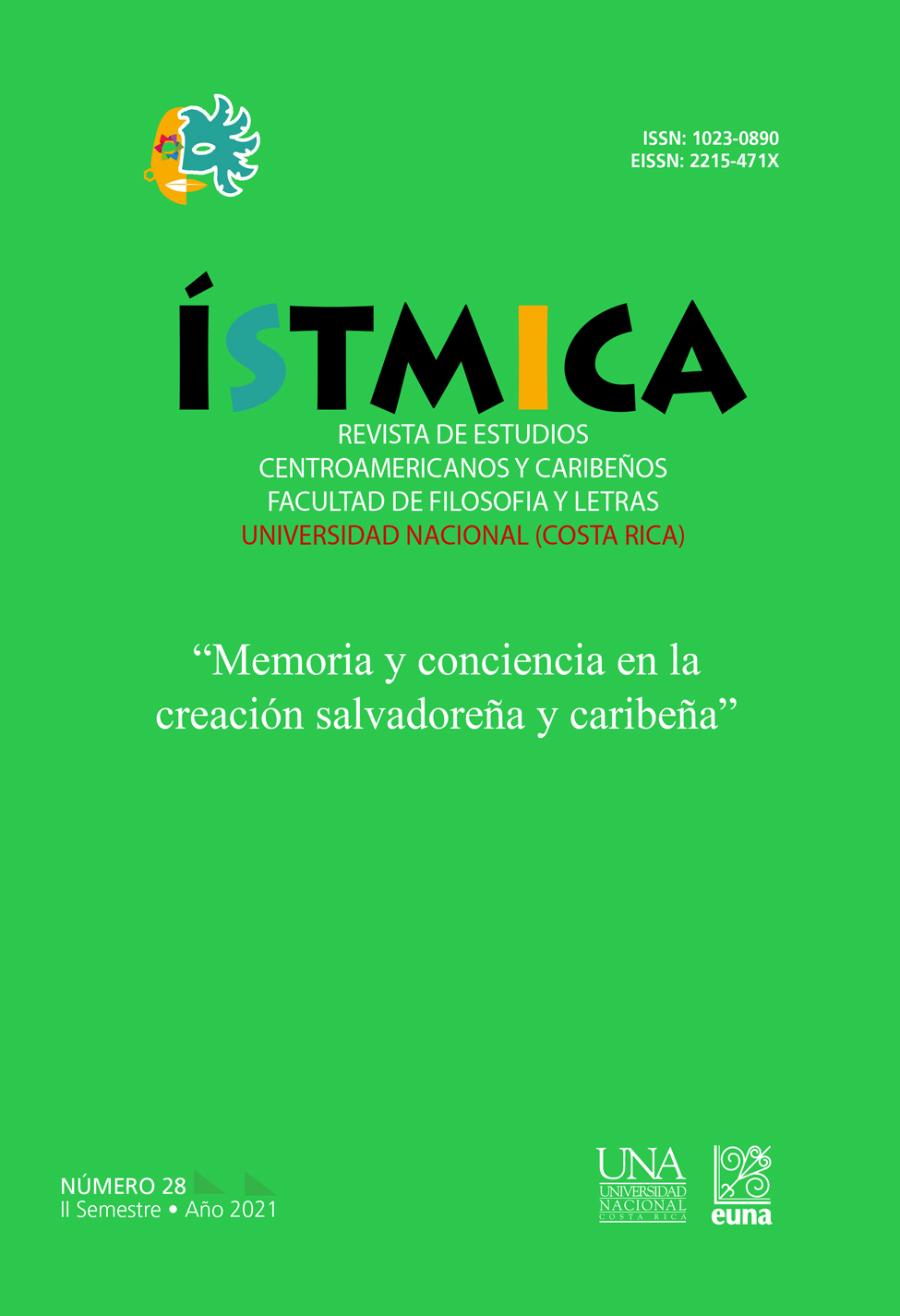Image, nation and Cuban identity in the Hollywood discourse
DOI:
https://doi.org/10.15359/istmica.28.6Keywords:
Exoticization, Cuban identity, Hollywood IndustryAbstract
Cuban Cinema is said to date back to the first moving images shot by Americans in Cuba during the Spanish-Cuban-American War (1898) an era that precedes the rise of Hollywood and its global hegemony. Today, we would call these pioneering films ‘political propaganda’ - that historian Román Gubern has argued reveal the eternally manipulative nature of cinematographic language. In the long history of Hollywood cinema, there are many films that have addressed aspects of Cuban identity, and we cannot diminish their influence - or at least the effort - in building a credible and truthful image of Cuba.
However, since its early days, Hollywood has also often projected an exotic and stereotyped representation of Cuban identity-based on many films that were actually shot in spaces and locations outside the island. I argue that in this process, not only the nation’s historical memory has been distorted, but it is a phenomenon that continues to the present day. This essay takes a panoramic view of the representation of Cuban identity, culture, and history in Hollywood, from the times of the Spanish-Cuban-American War until the recent administration of President Barack Obama, a period marked by the famous Cuban Thaw. At stake, are the issues of ethics of representation of the “other” amid power differentials in cinema about Cuba, but also across Latin America.
References
- Boudet, Ileana Rosa. “¡No es Cuba, es Hollywood!”, en Encuentro de la Cultura cubana. España: Cubaencuentro, 2004.
- Caballero, Rufo. Un hombre sólo y una calle oscura, los roles de género en el cine negro. La Habana: Ediciones Unión, 2005.
- Chanan, Michael. De regreso al principio. 1898 y el cine en Cuba. En Revista Temas (1998): 14-56.
- del Rio, Joel, Marta, Díaz. Los cien caminos del cine cubano. La Habana: Ediciones ICAIC, 2010.
- Díaz, Desiré. “Más allá del mar”. En Revista La Gaceta de Cuba (2006): 16-7.
- Firmat, Pérez Gustavo. La vida en vilo: la cultura cubanoamericana, La Habana: Editorial Colibrí, 2014
- López, Ana M. “¿Son todos los Latinos de Manhattan? Hollywood, etnografía y colonialismo cultural”. En Revista cine cubano (2008): 92-97.
- González, Reinaldo, ed., Coordenadas del cine cubano. Santiago de Cuba: Ediciones Oriente, 2001.
- González, Reinaldo. Cine cubano, ese ojo que nos ve. Santiago de Cuba: Editorial Oriente, 2011.
- Hernández Martínez. Jorge, “Cuba en la política norteamericana: representación metafórica y lógica de dominación”. En Revista Temas (2014).
- Hernández, Rafael. “La imagen de Cuba en el cine: el making de un canon”. En Cine cubano No. 159 (2006):
- Hernández, Rafael, ed, Culturas encontradas: Cuba y EE.UU. Estados Unidos: Universidad de Harvard, 2001.
- Naito López, Mario, ed, Coordenadas del cine cubano. Santiago de Cuba: Editorial Oriente, 2005.
- Pérez, Louis. Cuba en el imaginario de los Estados Unidos. La Habana: Editorial de Ciencias Sociales, 2014.
- Pérez Firmat, Gustavo. La vida en vilo: la cultura cubanoamericana, Editorial Colibrí, Madrid, 2014.
- Reyes, Dean Luis. “La nación viajera: manifiesto contra la teleología insular”. En Revista La Gaceta de Cuba (2003): 21-27.
- Rodríguez, Raúl. El cine silente en Cuba. La Habana: Editorial Letras Cubanas, 1992.
- Sorlin, Pierre. Sociología del cine: la apertura para la historia del mañana. México: Fondo de Cultura Económica, 1977.
- Stonor Saunder, Frances. La CIA y la Guerra Fría Cultural. La Habana: Editorial
de Ciencias Sociales, 2003.
- Vicenot, Emmanuel. “La ciudad es para mí: la representación de La Habana y Santiago de Cuba en los home-movie norteamericanos de los años veinte”. En Revista cine cubano, 2006.
Published
How to Cite
Issue
Section
License
Las personas autoras que publiquen en esta revista permiten cesión gratuita, exclusiva, de ámbito mundial de sus derechos de autoría a la Universidad Nacional (Costa Rica), conservando únicamente sus derechos morales sobre la obra publicada.
Los artículos pueden ser citados y copiados, citando a la persona autora y la fuente. Todos los artículos publicados en la Revista Ístmica están protegidos bajo una Licencia Creative Commons Atribución-NoComercial-CompartirIgual 4.0 Internacional








